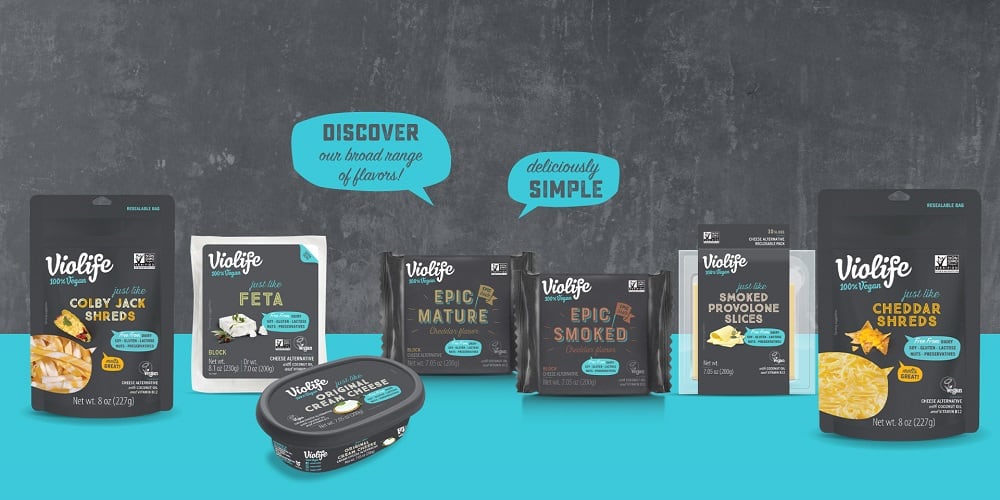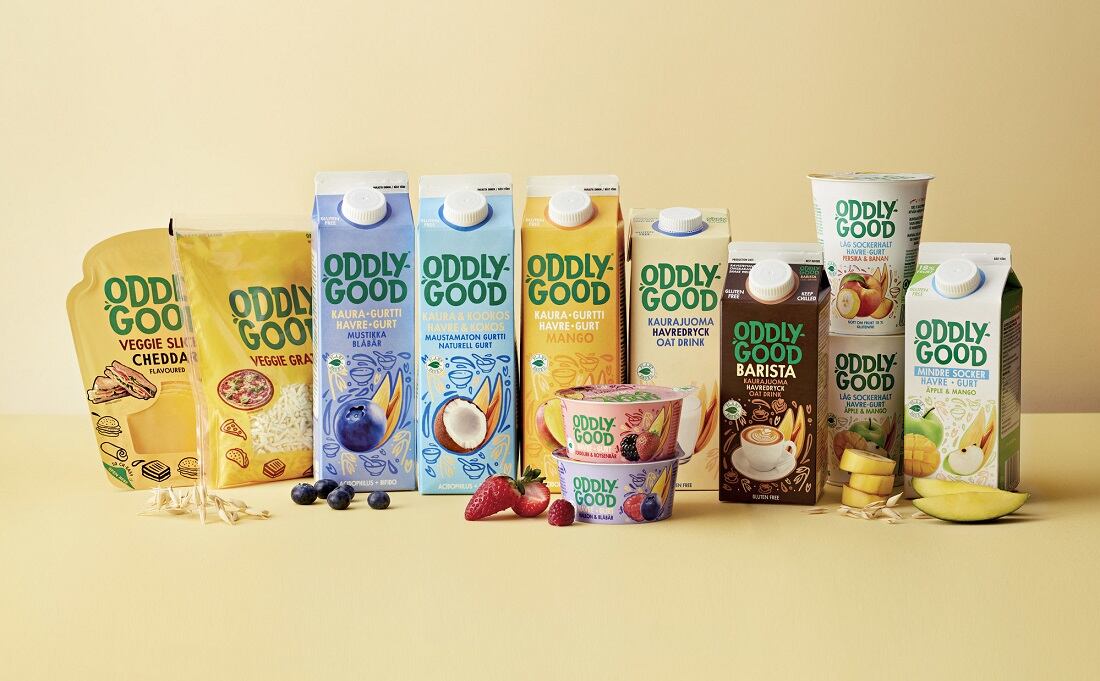New to the US market but not new to the world, Violife was founded in the '90s in Greece as a dairy-free cheese alternative that could be consumed during Greek Orthodox fasting days when animal proteins are off limits.
Violife entered the US market in 2015 through a small import business with limited consumer reach. All products are currently still imported from Greece and in January 2020, the company made a re-debut following the acquisition of Violife's parent company, Arivia, by US-based Upfield, thus increasing its scale and sales operations.
In just under two years, Violife has become the top vegan cheese brand by share in the category, according to reported Nielsen xAOC data in the last 13 weeks, which showed that Violife has the #1 share of the non-dairy cheese category followed by Daiya in #2, and Follow Your Heart in #3.
"The organic consumer advocacy is one of the main growth engines for Violife and one of the No. 1 reasons we’ve been able to become the #1 share position," Violife's general manager, Andy Reichgut, told FoodNavigator-USA, adding that the brand's ingredients are "very simple" (refined coconut oil and various gluten-free starches) and that the secret sauce is in its process.
"What makes us uniquely better in terms of taste and performance is really our process, which has been perfected over 20+ years," said Reichgut.
The biggest hurdle: Consumers taste perceptions
Reichgut believes the bar for success for dairy-free cheese is much higher than other plant-based dairy categories due to the indulgent nature of the products, which in some ways has held the category back and something that Violife is looking to correct.
"We really believe that we have products that once consumers try it, it changes their whole perception of this category," said Reichgut.
Its beacon product, a soft, creamy feta, is the brand's top-performing product and a gateway for many consumers to become loyal Violife consumers, claimed Reichgut.
"In consumer taste tests, our cream cheese was preferred 3 to 1 over competitors," said Reichgut who added that unlike many other competitors in the subset of plant-based soft cheeses which use a cultured nut base (e.g. Miyoko's, Kite Hill), Violife's formulations are nut-free and like the rest of its portfolio use a combination of refined coconut oil and gluten-free starches.
Violife has also performed extensive benchmark studies for its other products - shreds and slices - which have yielded similar positive results, according to Reichgut, who added how its cheese can perform all the essential sensory functions (i.e. melt and stretch) of dairy cheese including melt and stretch.
"We have products that taste and perform just like dairy cheese and we’re super excited about that," he said.
Plant-based cheese category, big fish in a small pond?
And while Violife has shot to the #1 spot in the plant-based cheese category, there is still much more room for growth in terms of household penetration and attracting new consumers to the segment, noted Reichgut.
"Only 1-2% of consumers who eat cheese are also buying plant-based cheese, and with milk it’s close to 20%. Even yogurt is higher," he noted.
In 2020, the plant-based cheese category was worth around $270m, a fraction of the $2.5bn plant-based milk category and less than plant-based yogurt which grew to $343m last year, according to retail sales data from the Good Food Institute.
However, growth of the plant-based cheese category has exceeded other plant-based dairy categories growing 40% in 2020 and 70% between 2018-2020, according to GFI.
"In many ways, we’ve become the big fish in the small pond. The real unlock in category growth is going to come from the 'dairy avoiders' and people who are curious about eating plant-based food," said Reichgut, who believes that in the not-so-distant future plant-based cheese can reach the same level of household penetration as non-dairy milk alternatives.
"I think there’s going to be tremendous innovation over the next 10, 20 years. We look at Violife doing to plant-based cheese what companies like Impossible Foods and Beyond Meat have done to plant-based meat," added Reichgut.




